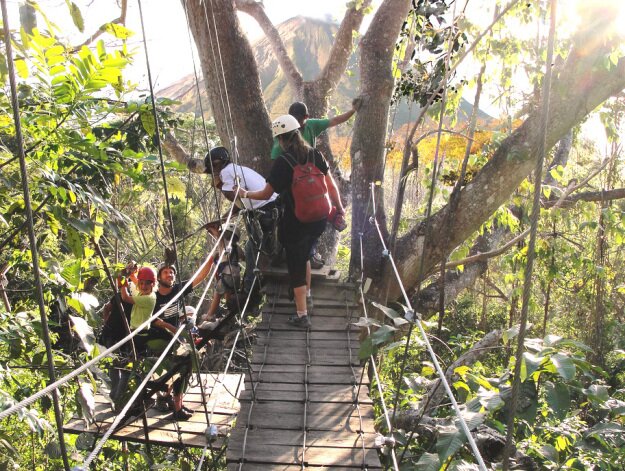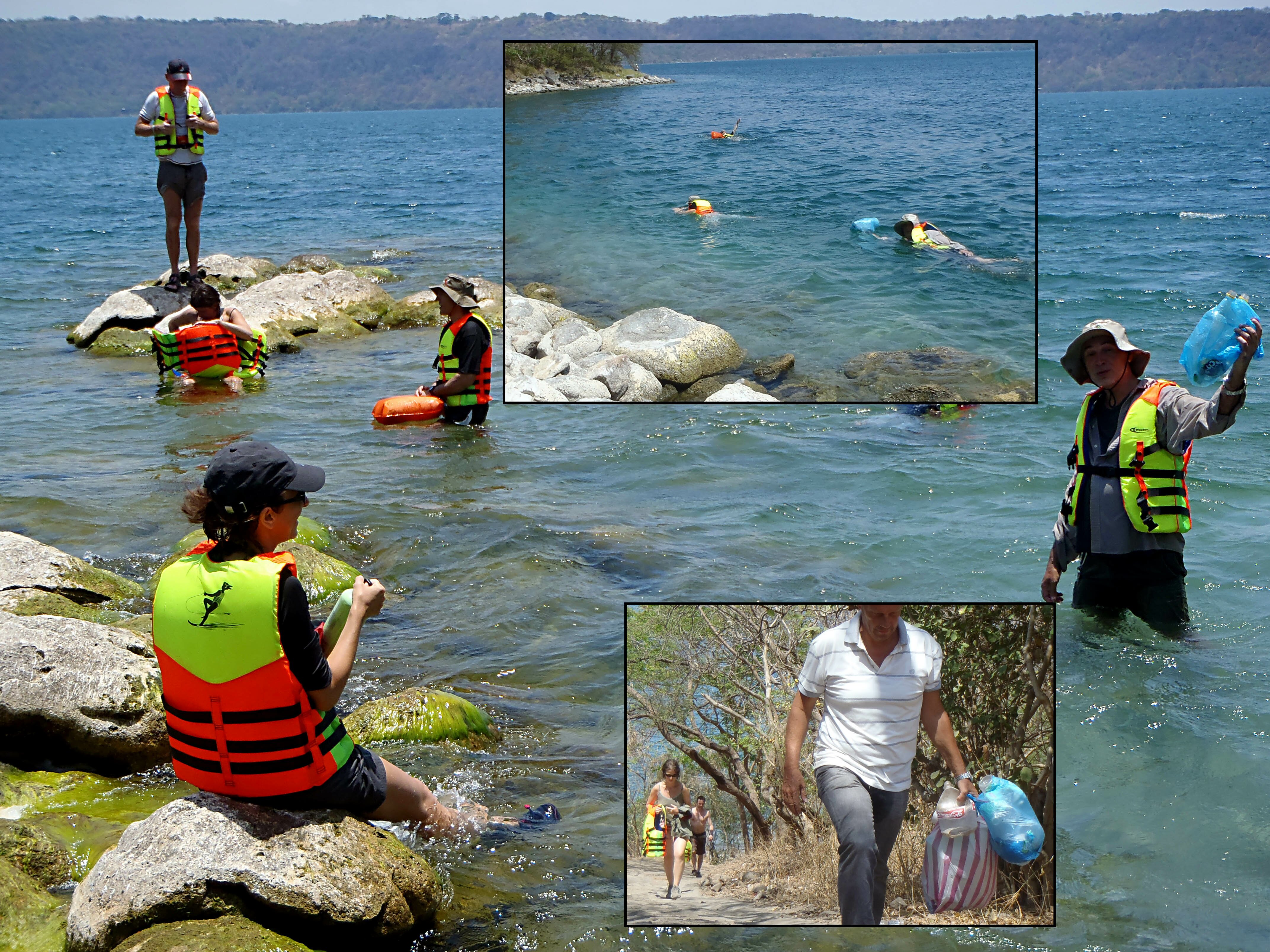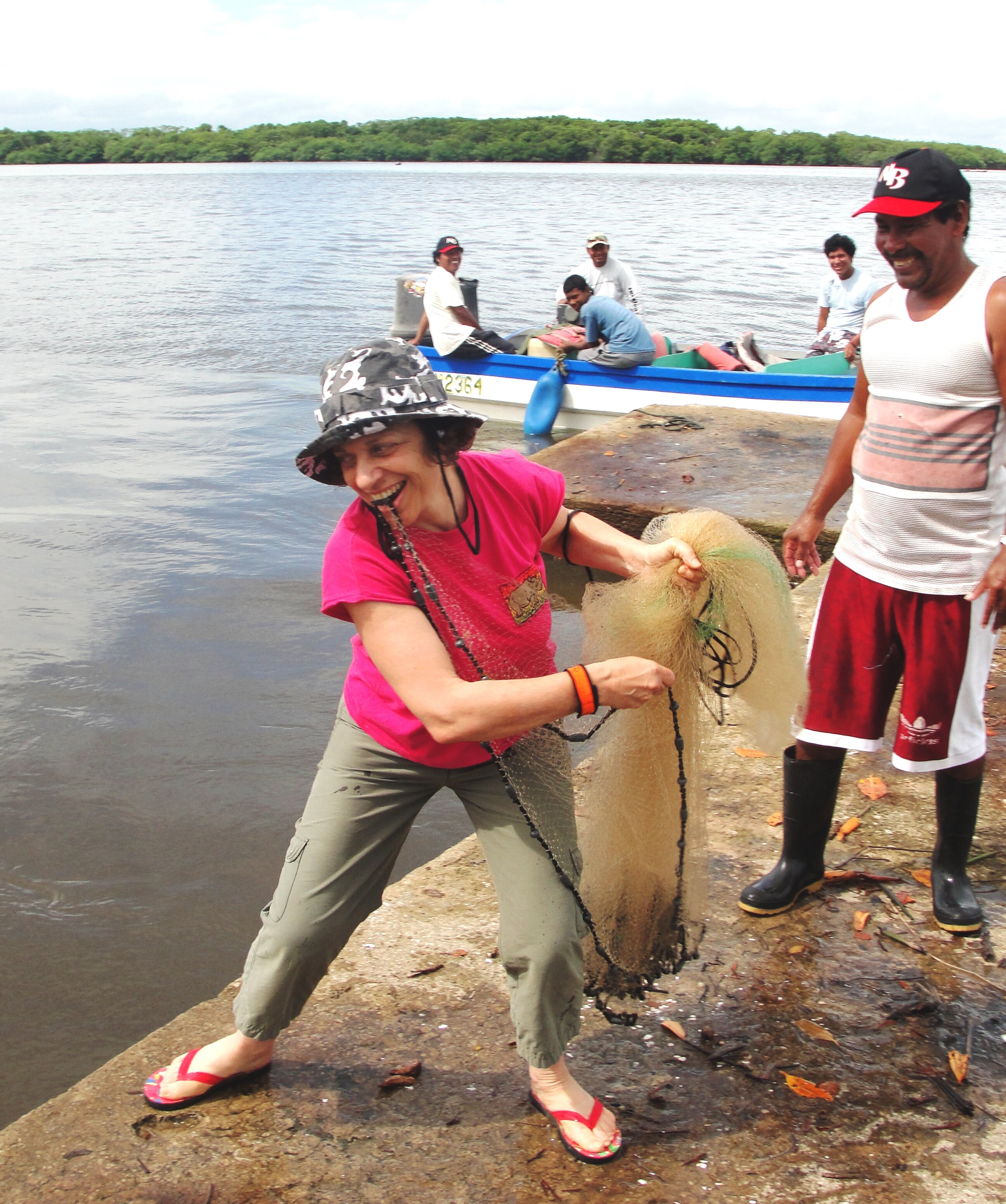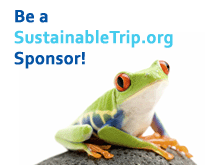Vea esta publicación en español.
In 1991, Laurent Richardier traveled from France to Nicaragua to finish his studies in tropical agronomy and local development. A few years later, his education, career, and personal goals led him to stay in that country to somehow help it reemerge after the devastating civil war that had left violence, sadness, poverty, and much underdevelopment.
Richardier now owns DETOUR Viajes y Cultura, a Rainforest Alliance Verified™ tour operator that is this month's winner of our "Making a Difference" award.
He tells us more about his company's work and how he has helped his adopted country advance through sustainable tourism.
Question: How did you come up with the idea of opening a tour agency as a tool for helping local development in Nicaragua?
Richardier: In 2000, the country began offering tourism products, primarily in rural community tourism, and that's when I thought this could be the most effective vehicle for local development. This type of tourism involves local communities, it was ideal for exposing the living culture and the warmth of the Nicaraguans, and it would be a channel to help them rescue, use, and protect their natural and cultural resources. In 2001, as an inbound operator, I developed itineraries that involved experiences with community residents -- staying in their homes, fishing with local fishermen, riding with cowboys ... Thus DETOUR Viajes y Cultura was born.
Q: What is your motivation to adopt and promote sustainable tourism?
R: It's a matter of conscience. DETOUR's mission is based on the desire to maintain hope and build a better future. To do this, we must carry out more responsible economic activities, protect ecosystems, ensure that culture and local economic development exists in harmony, and that communities can endure thanks to stable local development.
Q: What inspired you to become Rainforest Alliance Verified?
R: We thought it would help us gain visibility and effectiveness as a company, and we believed that Nicaragua had the perfect conditions for offering sustainable tourism and promoting this image globally. We also needed technical assistance to work in a more sustainable and orderly way. Personally, I wanted to expand my knowledge and achieve a high level of professionalism through the training that the Rainforest Alliance offers. In addition, I knew that with this training, my company could motivate local suppliers and community partners to be more aware, more professional, and more sustainable. In the end, they could gain more benefits and receive more responsible visitors!
Q: What are some of DETOUR's key sustainability initiatives?
R: Our work on sustainability consists of many small details. Two days a year, we train freelance guides on sustainability, quality of service, and tourist awareness. We are implementing a new tool with our transportation providers to control fuel consumption and we promote "zero-carbon" tours. In Granada, we give $5 incentives to those who use bicycles instead of taxis to get to the port where they start their tour of the islands, and we encourage other hoteliers and tour operators to promote the use of bicycles to their customers.
We focus on designing increasingly sustainable excursions with packages for low environmental impact and high socio-economic impact, such as new treks and multi-day expeditions in kayak, on horseback, or by bicycle. We also analyze our itineraries each year to eliminate unnecessary travel and we include more hotels that participate in sustainability programs, particularly those that are verified by the Rainforest Alliance. In addition, we try to convince the hotel owners with whom we have worked for a long time to adopt sustainability, and we seek communities that are starting to work in tourism to help them and include them in our "cultural adventures" packages.
Finally, we are developing solidarity tourism. We have partnered with two local NGOs that work on sustainable development and poverty reduction to integrate visits to the communities and schools where they work into our itineraries. As a result, many tourists have become involved in their activities, providing volunteer labor and money for projects such as digging a well or installing a solar-powered home lighting system in a rural area. DETOUR also contributes $100 per month to a volunteer who is doing social work in the community.
Q: How do you support the sustainable development of local communities in Nicaragua?
R: We believe that the best way to help them is by generating sustainable rural tourism activities. Our duty is to include their rich cultural and natural heritage in our tourism activities, so that they can generate income and get jobs and self-employment, while we help them to make use of this heritage with the least negative impact and protect it. In the Rio Escalante-Chacocente Wildlife Refuge in Nicaragua's southern Pacific region, there is a tourism cooperative composed of former turtle egg hunters and gatherers who now protect the reserve, so we include them in all the itineraries we can! We also promote and help numerous existing social and environmental initiatives in the communities. For example, our tours include visits to women's groups that make and sell crafts, we take tourists to eat at a restaurant run by deaf-mute young people, and at the end of their stay in the country, all of our groups attend a mime and comedy show performed by children rescued from the streets.
Q: Do you collaborate with other tour operators in Nicaragua?
R: Along with our eight colleagues that belong to the Tour Operators Promoting Sustainability (TOPS) program in Nicaragua, we aim to be a lobbying force before the National Assembly and the Ministry of Tourism from the perspective of sustainable businesses in order to inform policymaking or projects that promote the adoption of sustainability as a general policy for the country. This year, we developed a collaborative project that includes a plan to train national guides and tourism transport companies in sustainability; financial support to hotel suppliers who wish to obtain Rainforest Alliance verification; the creation of 100% sustainable packages and a TOPS catalog; participation in the Green Summit, a conference on sustainability in Nicaragua that will be associated with the upcoming Central American Travel Market Fair 2014; and trips with foreign journalists to show them the country's sustainable destinations and products.
Q: What are the main challenges that tour operators face in operating sustainably?
R: Positively influencing colleagues, suppliers, and community stakeholders who still have little awareness. Isolated efforts do not have major effect and so we must promote a sustainable travel collective for the country as a destination, and for that we need to talk and promote ourselves and these ideals. Our challenge as a sustainable operator is to promote and support local policies for sustainability, working together as a sector and closely with local governments.





